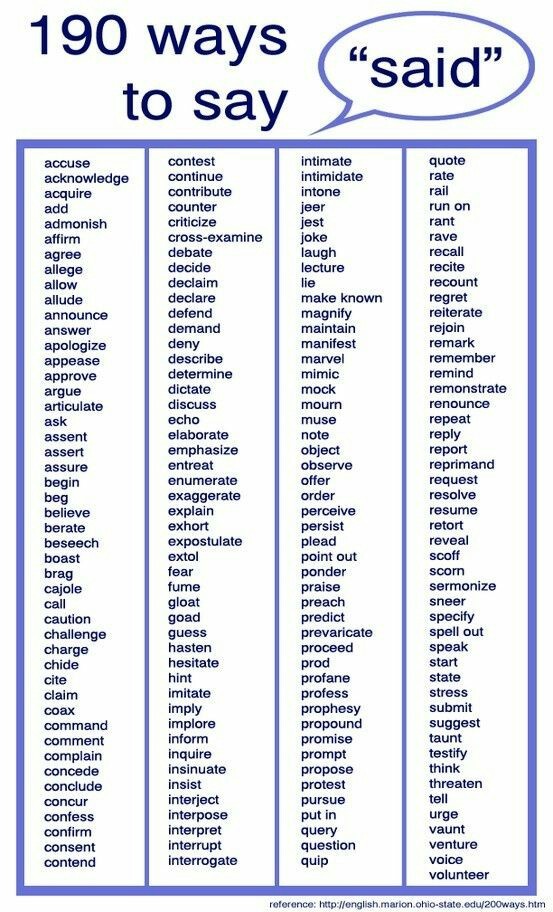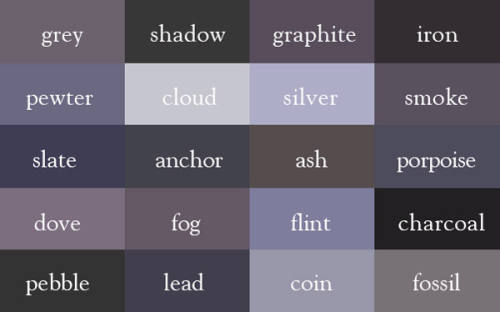Sighed - Let Out A Deep Audible Breath Or Made A Similar Sound (such As Weariness Or Relief)
Words instead of sighed and frowned?
Sighed - let out a deep audible breath or made a similar sound (such as weariness or relief)
Exhaled - breathed out
Heaved - uttered with obvious effort or with a deep breath
Huffed - emitted puffs (as of breath); usually with indignation or scorn
Insufflated - blew on, into, or in (something)
Puffed - blew in short gusts; exhaled forcibly
Snorted - forced air violently through the nose with a rough harsh sound (to express scorn, anger, indignation, or surprise)
Snuffled - breathed through an obstructed nose with a sniffing sound
Suspired - drew a long deep breath; sighed
Frowned - contracted the brow in displeasure or concentration
Glared - stared angrily or fiercely
Glouted - (archaic) frowned, scowled
Glowered - looked or stared with sullen annoyance or anger
Grimaced - distorted one's face in an expression usually of pain, disgust, or disapproval
Loured - looked sullen; frowned
Moue - a twisting of the facial features in disgust or disapproval
Pouted - showed displeasure by thrusting out the lips or wearing a sullen expression
Scoffed - expressed scorn, derision, or contempt
Scowled - contracted the brow in an expression of displeasure
Sulked - silently went about in a bad mood
Hope this helps. If it inspires your writing in any way, please tag me, or send me a link. I would love to read your work!
More: Word Lists ⚜ Writing Resources PDFs
More Posts from Writersreferencez and Others
I don't know how accurate some of these are, but they can be useful






There’s a fic on fanfiction(.)net that I’ve kept tabs on for years to see if it’s been updated or not. While I’m no longer even in the fandom it’s written for, it just has one of the greatest storylines I’ve ever read. Last time it was updated was 2011.
The other day, I decided to reread the entire thing and leave a very in-depth review of what I thought of each chapter. I also mentioned how I started reading it when I was 13 and am now 21, but always came back to see if it was ever finished because I loved it so dearly.
Today, said author sent me a private message saying that her analytics showed that the story was still getting views even after all these years, but no one ever bothered to leave reviews other than “update soon!!!”, so she never felt motivated enough to finish it. She said that me reviewing every single chapter with lengthy paragraphs made her cry and meant the world to her. She also mentioned that she felt encouraged to write the two remaining chapters needed to complete the story and that she would send me a message the night before she updates the fic.
I’m literally sobbing. I’m so excited :’)
Please always remember to leave a review when reading fanfiction!!! It means a lot to a writer.
hey writers! OneLook Thesaurus lets you find that word you can’t think of but can describe! go check it out!



random medical facts to use for your hospital whump writing. let your whumpee be a patient today!
if a patient has a seizure that lasts longer than 5 minutes, or if they suffer several seizures, they risk sustaining brain damage — because their brain can’t get oxygen during the seizure.
if a patient’s coughing up blood when they’re lying on their back, make sure to tune their face to the side so that they don’t choke on their own blood (the same applies to vomit too)
chest compression can and often leave patients with broken ribs. because you have to push down hard enough in order to help pump blood from the patient’s heart to their brain (the point is so that the brain gets blood, in order to prevent brain damage), and more often than not, you’ll end up breaking your patient’s ribs — that is normal and okay, because it’s better for your patient to have broken ribs than it is for them to lose their life.
after a course of electroconvulsive therapy, you’ll normally have to give your patient a dose of muscle relaxant, otherwise the aftermath of the shock may cause musculoskeletal complications.
you don't use a defibrillator to shock a patient if they already flat line, because their heart no longer has any electricity. quote "asystole isn't a shockable rhyme, and defibrillator may actually make it harder to restart the heart." (Cleveland Clinic)
the famous, classic "a character was knocked out and they stayed unconscious for hours before they woke up on their own with no lingering damage" trope is actually almost impossible if you want your work to be medically accurate (but if you don’t care about accuracy and are just here for the whump, that is totally fine!). if someone was knocked out and they stayed unconscious for more than several minutes, chances are that they suffer permanent brain damage, so they won't "wake up on their own in the next hour or two and be completely fine without intense medical attention".
helpful sites for writers
i have a little collection of websites i tend to use for coming up with ideas, naming people or places, keeping clear visuals or logistics, writing basics about places i've never been to, and so on. i tend to do a lot of research, but sometimes you just need quick references, right? so i thought i'd share some of them!
Behind the Name; good for name meanings but also just random name ideas, regardless of meanings.
Fantasy Name Generator; this link goes to the town name generator, which i use most, but there are lots of silly/fun/good inspo generators on there!
Age Calculator; for remembering how old characters are in Y month in Z year. i use this constantly.
Height Comparison; i love this for the height visuals; does character A come up to character B's shoulder? are they a head taller? what does that look like, height-wise? the chart feature is great!
Child Development Guide; what can a (neurotypical, average) 5-year-old do at that age? this is a super handy quickguide for that, with the obviously huge caveat that children develop at different paces and this is not comprehensive or accurate for every child ever. i like it as a starting point, though!
Weather Spark; good for average temperatures and weather checking!
Green's Dictionary of Slang; good for looking up "would x say this?" or "what does this phrase mean in this context?" i love the timeline because it shows when the phrase was historically in use. this is english only, though; i dig a little harder for resources like this in other languages.
Some words to use when writing things:
winking
clenching
pulsing
fluttering
contracting
twitching
sucking
quivering
pulsating
throbbing
beating
thumping
thudding
pounding
humming
palpitate
vibrate
grinding
crushing
hammering
lashing
knocking
driving
thrusting
pushing
force
injecting
filling
dilate
stretching
lingering
expanding
bouncing
reaming
elongate
enlarge
unfolding
yielding
sternly
firmly
tightly
harshly
thoroughly
consistently
precision
accuracy
carefully
demanding
strictly
restriction
meticulously
scrupulously
rigorously
rim
edge
lip
circle
band
encircling
enclosing
surrounding
piercing
curl
lock
twist
coil
spiral
whorl
dip
wet
soak
madly
wildly
noisily
rowdily
rambunctiously
decadent
degenerate
immoral
indulgent
accept
take
invite
nook
indentation
niche
depression
indent
depress
delay
tossing
writhing
flailing
squirming
rolling
wriggling
wiggling
thrashing
struggling
grappling
striving
straining
If you write a strong character, let them fail.
If you write a selfless hero, let them get mad at people.
If you write a cold-heated villain, let them cry.
If you write a brokenhearted victim, let them smile again.
If you write a bold leader, let them seek guidance.
If you write a confident genius, let them be wrong, or get stumped once in a while.
If you write a fighter or a warrior, let them lose a battle, but let them win the war.
If you write a character who loses everything, let them find something.
If you write a reluctant hero, give them a reason to join the fight.
If you write a gentle-hearted character who never stops smiling, let that smile fade and tears fall in shadows.
If you write a no one, make them a someone.
If you write a sibling, let them fight and bicker, but know that at the end of the day they’ll always have each other’s back.
If you write a character, make them more than just a character; give them depth, give them flaws and secrets, and give them life.
Inner Conflict Prompts
Have a character wrestle with guilt over a past mistake.
Introduce a scenario where a character must choose between two equally important things.
Show a character struggling with their own identity or sense of self.
Have a character battle their own fears or phobias.
Introduce a moral dilemma that challenges the character’s values.
Show a character torn between loyalty to their friends and their personal ambitions.
Reveal a character’s internal struggle with jealousy or envy.
Have a character grapple with feelings of inadequacy or imposter syndrome.
Show a character dealing with the aftermath of a traumatic event.
Have a character question their own sanity or reality.
Color Synonyms
White

also: pale; blanched; sallow; pallid; waxen; spectral; translucent; albino;
Grey

also: dust; stone; pepper;
Black

also: coal; slate; dusky; ebon; shadow; murky;
Tan

also: flesh; khaki; cream; tawny;
Brown

also: henna; russet; sepia; chestnut; cocoa; drab; bronze;
Red

also: terracotta ; rouge; carmine; fire-engine; ruddy
Orange

also: pumpkin ; rust ;
Yellow

also: sunny; amber; saffron; hay; straw; platinum;
Green

also: viridescent; grass; jade; forest;
Blue

also: turquoise; cyan; ultramarine; royal; aqua; aquamarine;
Purple

also: berry; amaranthine;
Pink

also: flushed; candy; cherry blossom; petal pink ;
—– source: http://ingridsundberg.com/
—–additional synonyms added by me

128 Words to Use Instead of ‘Very’
-
 crescentataraxy liked this · 2 weeks ago
crescentataraxy liked this · 2 weeks ago -
 redlantern01 liked this · 2 weeks ago
redlantern01 liked this · 2 weeks ago -
 ongoingmunchies39 liked this · 2 weeks ago
ongoingmunchies39 liked this · 2 weeks ago -
 jupiteronline liked this · 3 weeks ago
jupiteronline liked this · 3 weeks ago -
 havanauhnana liked this · 3 weeks ago
havanauhnana liked this · 3 weeks ago -
 maoyalikestowrite liked this · 3 weeks ago
maoyalikestowrite liked this · 3 weeks ago -
 lazuriitti reblogged this · 4 weeks ago
lazuriitti reblogged this · 4 weeks ago -
 redaspect liked this · 4 weeks ago
redaspect liked this · 4 weeks ago -
 pinecones-and-porcupines liked this · 1 month ago
pinecones-and-porcupines liked this · 1 month ago -
 motelfawn liked this · 1 month ago
motelfawn liked this · 1 month ago -
 literallyasloth liked this · 1 month ago
literallyasloth liked this · 1 month ago -
 fedyalq liked this · 1 month ago
fedyalq liked this · 1 month ago -
 writersreferencez reblogged this · 2 months ago
writersreferencez reblogged this · 2 months ago -
 theecapricornrising liked this · 2 months ago
theecapricornrising liked this · 2 months ago -
 celestialcatsworld liked this · 2 months ago
celestialcatsworld liked this · 2 months ago -
 booklovernerdhuman1 reblogged this · 2 months ago
booklovernerdhuman1 reblogged this · 2 months ago -
 ducksnsoda reblogged this · 2 months ago
ducksnsoda reblogged this · 2 months ago -
 ducksnsoda liked this · 2 months ago
ducksnsoda liked this · 2 months ago -
 typingwithnails reblogged this · 2 months ago
typingwithnails reblogged this · 2 months ago -
 kane-log-and-findings reblogged this · 3 months ago
kane-log-and-findings reblogged this · 3 months ago -
 cinnamonbby reblogged this · 3 months ago
cinnamonbby reblogged this · 3 months ago -
 suriipurii liked this · 3 months ago
suriipurii liked this · 3 months ago -
 autisticchangeling77 liked this · 3 months ago
autisticchangeling77 liked this · 3 months ago -
 night-ecl1ps3 liked this · 3 months ago
night-ecl1ps3 liked this · 3 months ago -
 anaticiabooks liked this · 3 months ago
anaticiabooks liked this · 3 months ago -
 jam-tartzz liked this · 3 months ago
jam-tartzz liked this · 3 months ago -
 oioioioikqq liked this · 3 months ago
oioioioikqq liked this · 3 months ago -
 imgonnapissmyselfomg liked this · 3 months ago
imgonnapissmyselfomg liked this · 3 months ago -
 80sdeathgrip liked this · 3 months ago
80sdeathgrip liked this · 3 months ago -
 loservillepopulationtwelve reblogged this · 3 months ago
loservillepopulationtwelve reblogged this · 3 months ago -
 loservillepopulationzero liked this · 3 months ago
loservillepopulationzero liked this · 3 months ago -
 faeviae liked this · 3 months ago
faeviae liked this · 3 months ago -
 moonlit-diaries liked this · 3 months ago
moonlit-diaries liked this · 3 months ago -
 asukaharu liked this · 3 months ago
asukaharu liked this · 3 months ago -
 mygirlmm501 liked this · 4 months ago
mygirlmm501 liked this · 4 months ago -
 gorechaos liked this · 4 months ago
gorechaos liked this · 4 months ago -
 bunnnaraa liked this · 4 months ago
bunnnaraa liked this · 4 months ago -
 fre-sh-avaca-do liked this · 4 months ago
fre-sh-avaca-do liked this · 4 months ago -
 amber-winglet liked this · 4 months ago
amber-winglet liked this · 4 months ago -
 dzvelinaskebiyars liked this · 4 months ago
dzvelinaskebiyars liked this · 4 months ago -
 snoopdoowop liked this · 4 months ago
snoopdoowop liked this · 4 months ago -
 phoebespoet liked this · 4 months ago
phoebespoet liked this · 4 months ago -
 uutarriee liked this · 4 months ago
uutarriee liked this · 4 months ago -
 thecrus4der liked this · 4 months ago
thecrus4der liked this · 4 months ago